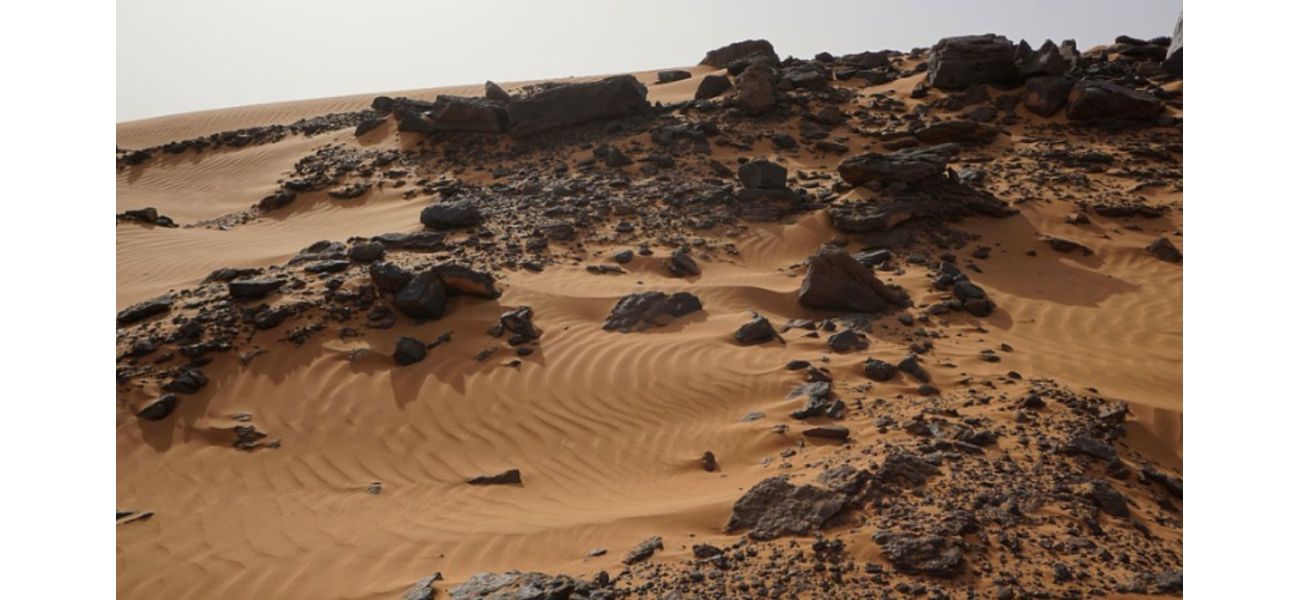There is a large area of unclaimed land, equivalent to a small country, that no government is interested in owning.
Bir Tawil, an anomaly in Africa for over 100 years. Explanation follows.
October 4th 2024.

Did you know that there is a vast expanse of desert in Africa that remains unclaimed by any nation? It's true. This parcel of land, known as Bir Tawil, is a whopping 2000 square kilometers and is larger than some Pacific island nations, European principalities, and even a city-state. However, despite its size, no country seems to want it.
This may seem strange, especially in a time where population pressures and competition for resources are at an all-time high. But the truth is, Bir Tawil has been largely uninhabited for over a century. Its origins can be traced back to the days of the British Empire, when they were in control of Egypt and Sudan. In 1899, British officials drew a political boundary between the two countries, placing Bir Tawil in modern-day Sudan. However, just three years later, in an effort to appease local tribes, a new administrative border was drawn, placing Bir Tawil under Egyptian control and giving Sudan the Hala'ib Triangle.
For decades, under British rule, no one really paid much attention to this seemingly unimportant piece of land. But after Egypt gained independence in 1956, a dispute arose when valuable oil and gas deposits were discovered in the Hala'ib Triangle, while Bir Tawil remained barren. Sudan claimed that the 1902 boundary proved their rightful ownership of the triangle, while Egypt argued that the 1899 boundary should still stand. This disagreement has led to a stand-off, as neither country wants to relinquish their claim to the more valuable land.
According to international law expert Rowan Nicholson, Egypt has had control over the Hala'ib Triangle since the 1990s, due to a weakened Sudanese government. However, Bir Tawil remains a "grey zone", a lawless place that neither country is willing to enforce any laws upon. This has not stopped some adventurous individuals, such as Jeremiah Heaton, from claiming the land for themselves. Heaton even declared himself ruler of the "Kingdom of North Sudan" in 2014, all in the name of making his daughter's dream of becoming a princess come true.
But Nicholson points out that these claims hold no weight in international law. In order for a country to be recognized, they must meet four criteria: territory, population, a government, and independence from other states. Simply planting a flag in the desert does not fulfill these requirements. The local Ababda tribe, who consider Bir Tawil their traditional land, are also skeptical of these claims.
Despite the lack of official recognition, some adventurous travelers have made the journey to Bir Tawil, eager to experience a unique and off-the-beaten-path destination. The local tribes are fiercely protective of their land and are not welcoming to those who attempt to claim it. Adventure travel company Young Pioneer Tours has even offered tours to the area, and founder Gareth Johnson estimates that thousands of people, mostly mine workers and their families, live in Bir Tawil at any given time.
In the end, Bir Tawil remains a peculiar and fascinating piece of land, caught in a diplomatic stalemate between two countries. While no nation may want it, it continues to intrigue and attract those willing to venture into this lawless and unclaimed territory.
This may seem strange, especially in a time where population pressures and competition for resources are at an all-time high. But the truth is, Bir Tawil has been largely uninhabited for over a century. Its origins can be traced back to the days of the British Empire, when they were in control of Egypt and Sudan. In 1899, British officials drew a political boundary between the two countries, placing Bir Tawil in modern-day Sudan. However, just three years later, in an effort to appease local tribes, a new administrative border was drawn, placing Bir Tawil under Egyptian control and giving Sudan the Hala'ib Triangle.
For decades, under British rule, no one really paid much attention to this seemingly unimportant piece of land. But after Egypt gained independence in 1956, a dispute arose when valuable oil and gas deposits were discovered in the Hala'ib Triangle, while Bir Tawil remained barren. Sudan claimed that the 1902 boundary proved their rightful ownership of the triangle, while Egypt argued that the 1899 boundary should still stand. This disagreement has led to a stand-off, as neither country wants to relinquish their claim to the more valuable land.
According to international law expert Rowan Nicholson, Egypt has had control over the Hala'ib Triangle since the 1990s, due to a weakened Sudanese government. However, Bir Tawil remains a "grey zone", a lawless place that neither country is willing to enforce any laws upon. This has not stopped some adventurous individuals, such as Jeremiah Heaton, from claiming the land for themselves. Heaton even declared himself ruler of the "Kingdom of North Sudan" in 2014, all in the name of making his daughter's dream of becoming a princess come true.
But Nicholson points out that these claims hold no weight in international law. In order for a country to be recognized, they must meet four criteria: territory, population, a government, and independence from other states. Simply planting a flag in the desert does not fulfill these requirements. The local Ababda tribe, who consider Bir Tawil their traditional land, are also skeptical of these claims.
Despite the lack of official recognition, some adventurous travelers have made the journey to Bir Tawil, eager to experience a unique and off-the-beaten-path destination. The local tribes are fiercely protective of their land and are not welcoming to those who attempt to claim it. Adventure travel company Young Pioneer Tours has even offered tours to the area, and founder Gareth Johnson estimates that thousands of people, mostly mine workers and their families, live in Bir Tawil at any given time.
In the end, Bir Tawil remains a peculiar and fascinating piece of land, caught in a diplomatic stalemate between two countries. While no nation may want it, it continues to intrigue and attract those willing to venture into this lawless and unclaimed territory.
[This article has been trending online recently and has been generated with AI. Your feed is customized.]
[Generative AI is experimental.]
0
0
Submit Comment





